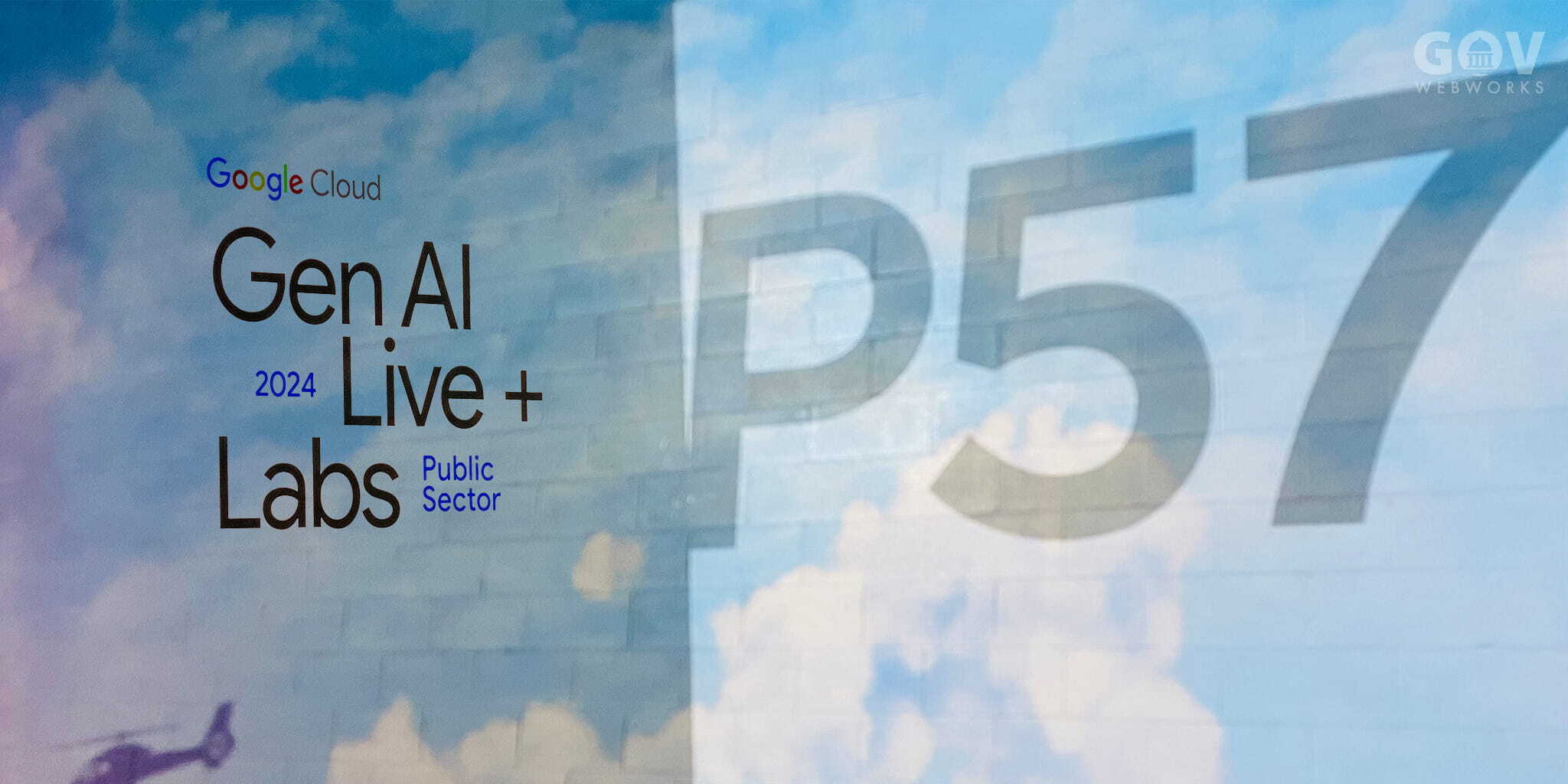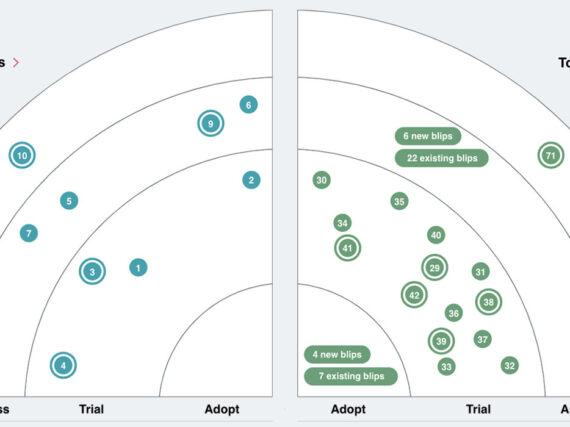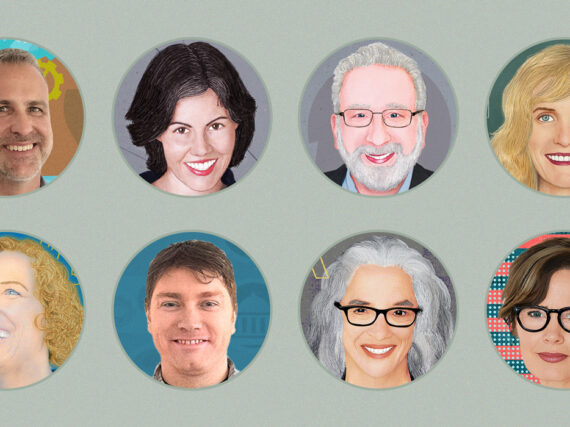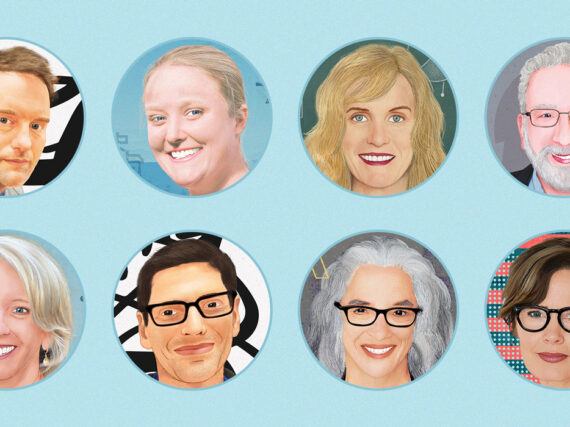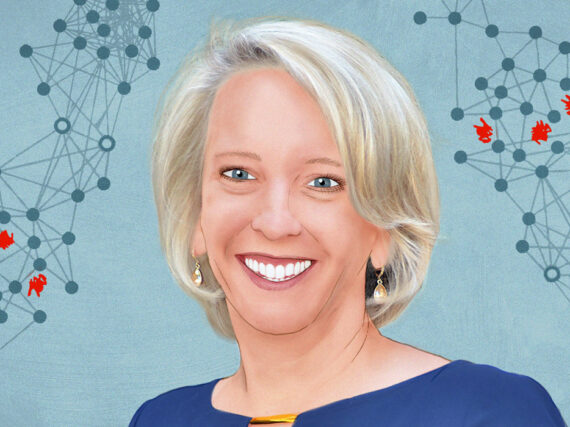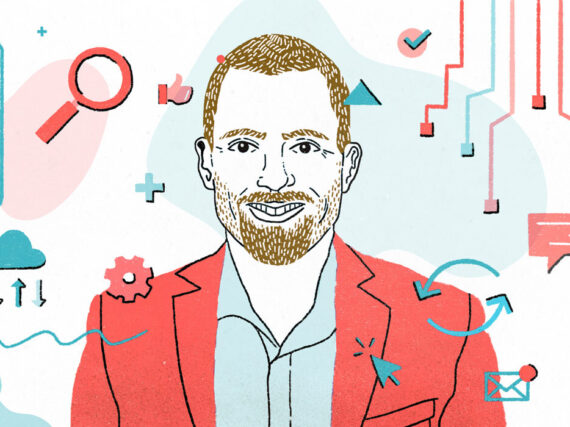The timing was good to attend a conference on generative AI tools for the public sector. Despite, or maybe because of, Google’s challenges with Gemini, Generative AI Live + Labs in New York City on February 28 was filled to capacity.

Encouraged by my coworker Adam Kempler, founder of the GovWebworks AI Lab, I wanted to see if Google’s large language model (LLM) and natural language processing (NLP) tools could benefit our company and clients.
My questions included:
- How do Google’s AI offerings compare to OpenAI’s?
- What are the differences between Google’s various LLM and NLP tools?
- How might we use these tools internally and for our clients?

Arriving at Pier 57, on the Hudson River in lower Manhattan, I had to get off the waitlist before I could ascend to Horizon Hall and catch the second half of the opening speaker. Caroline Yap, Google Cloud’s Managing Director of Global AI Business, was discussing the application of generative AI in transforming public services. From what I heard, her inspirational, if promotional, insights were in line with GovWebworks’ commitment to citizen-centric online solutions for the public sector.
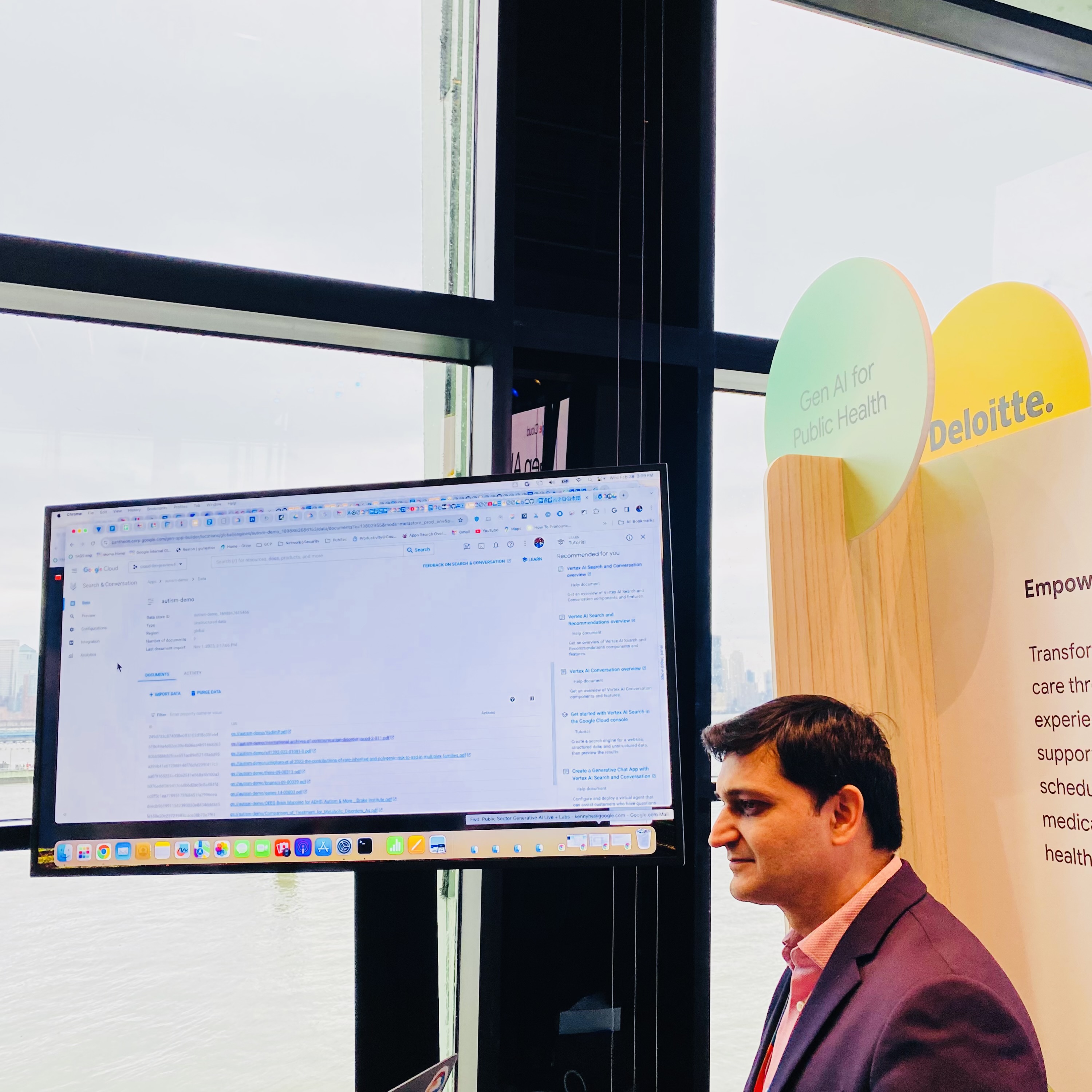
Between speakers, I visited the kiosks featuring case studies and Google experts demonstrating how Vertex AI’s Search & Conversation agents can optimize Medicaid services, workforce HR issues, and other public sector applications. I spoke with Google reps Charles Elliot, an AI Researcher, and Jason Nichols, a Cloud Customer Engineer, about using generative AI tools for grant management and preparation and wondered if we could use them to manage and prepare proposals for RFPs. They said yes, and to check out the Cloud Skills Boost Team Trial option.
The highlight of the conference was a panel of New York agency leaders discussing “Innovative Applications in New York.” Led by Amina Al Sherif, Google’s Public Sector Generative AI Lead for State and Local Government, the following panelists shared these takeaways:
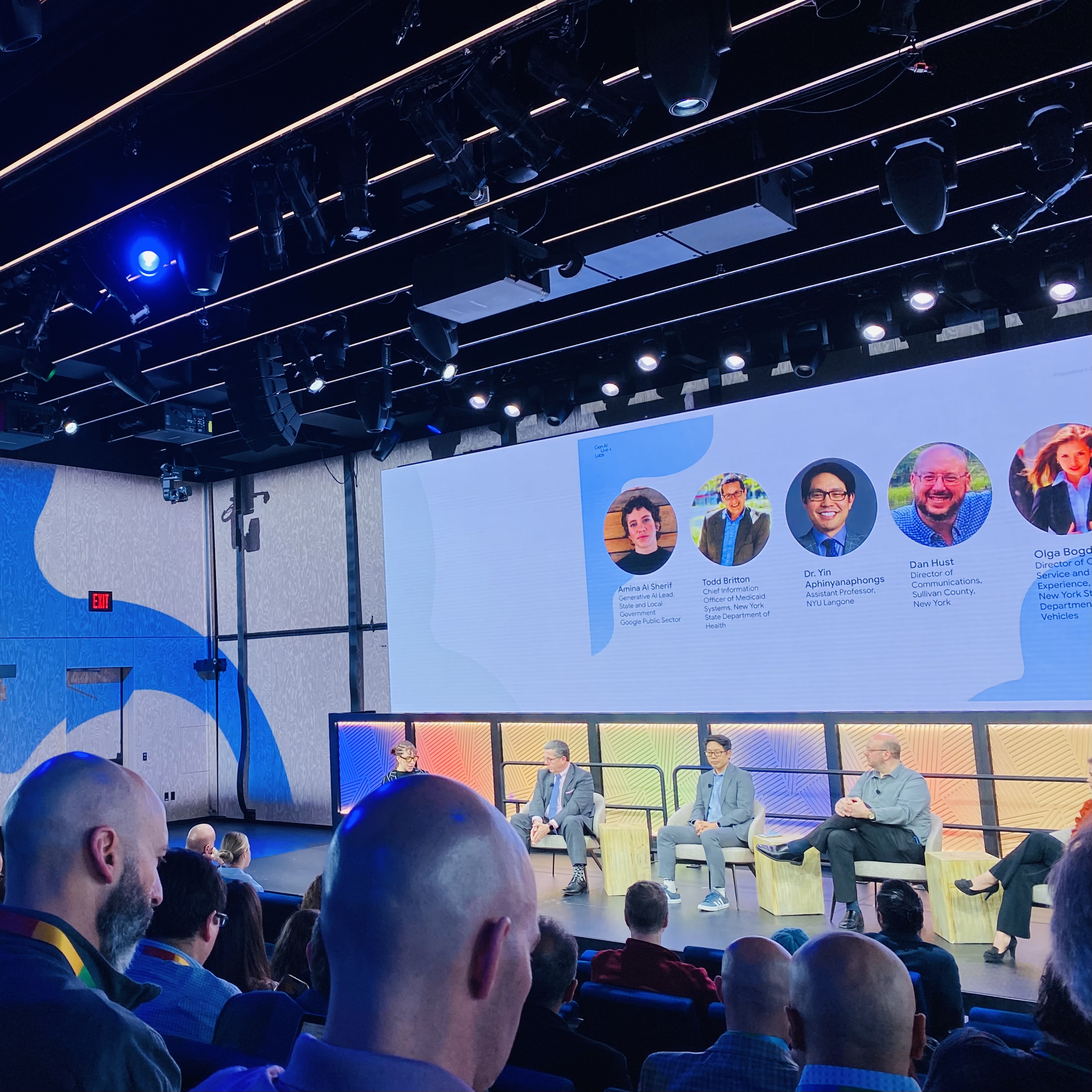
Todd Britton, Chief Information Officer at the New York State Department of Health, said he asks his chat agent to tell him what questions he’s not asking about how to do things better.
His tip for getting started: Scope out what’s possible, and try it.
Dr. Yin Aphinyanaphongs, Assistant Professor at NYU Langone, asks a virtual agent to check for prescribed medications that are documented for a certain need but not being given. He said AI tools are augmenting care in medicine, but patients absolutely still need a human to talk through things.
His tip: Start trying things and learn from experience.
Dan Hust, Director of Communications at Sullivan County NY, has developed a customer service chatbot with LLM integration that brought a 62 percent decrease in phone volume for basic questions. He said staff now get questions that actually need human intervention.
His tip: Think of this tech as supporting humans, not replacing them.
Olga Bogdanova, Director of Customer Service and Experience at New York State Department of Motor Vehicles, has a mission to use a local AI model to make all info cohesive across the DMV, and strives to strike a balance between the efficiency of AI and a human touch. She said the info collected by the AI agent is given to the human agent as background info so they have all the details when they talk to a person.
Her tip: Have a sense of humor and add a human touch when training AI agents.
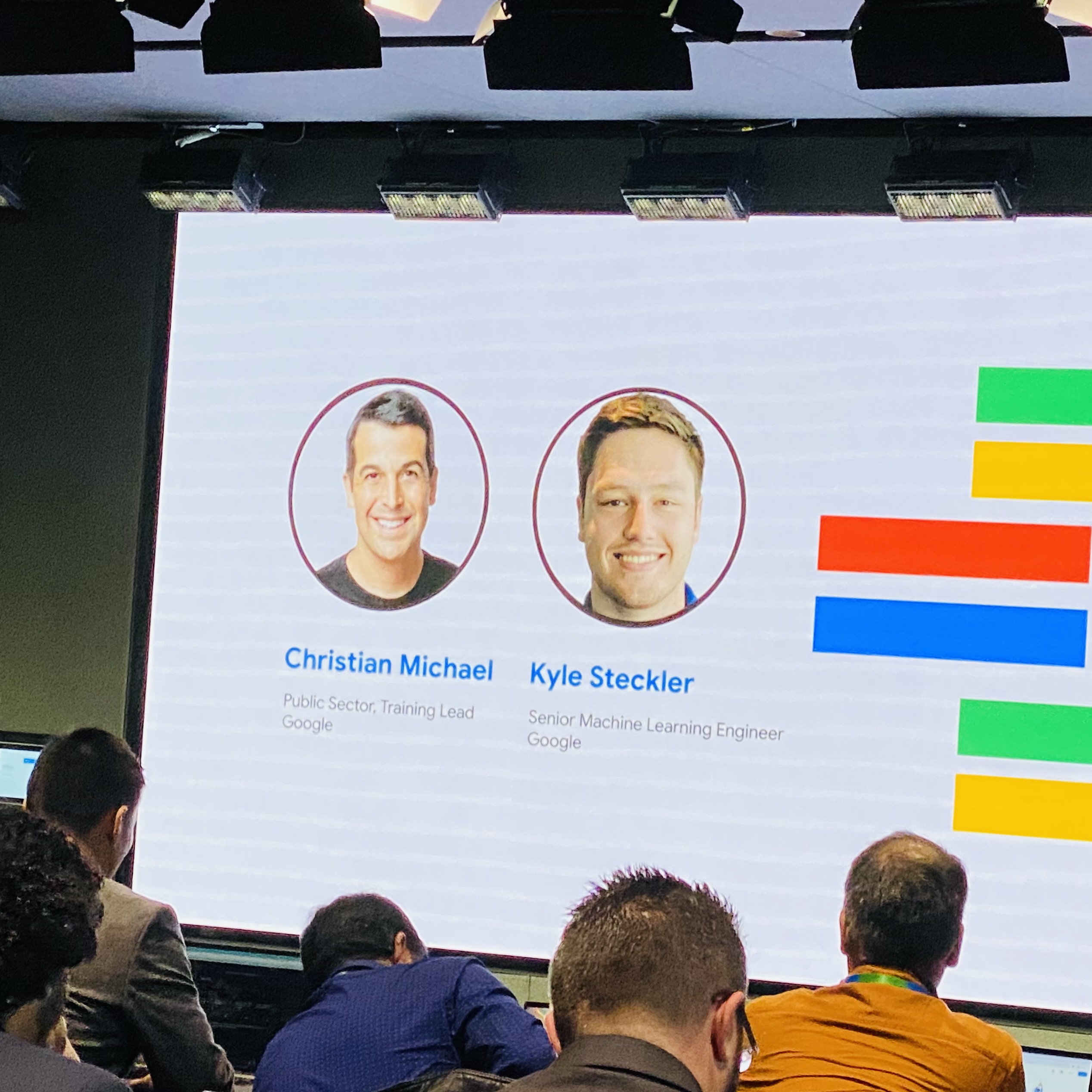
After the panel, we went to a breakout room for a hands-on lab demo of the VertexAI tools. Despite challenges with logging in and getting started, the tasks resembled prompts similar to what I’ve come to expect from LLMs. We uploaded an image and asked the assistant to read the text on the image, which turned out to be a list of departing flights at an airport. Then we got more specific with the data. We asked it to tell us what percentage of flights were going abroad and how many there was of each destination on average. What I wanted to know next was how to get Vertex to do the same thing with PDF documents, as I had seen done with the grant management tool.
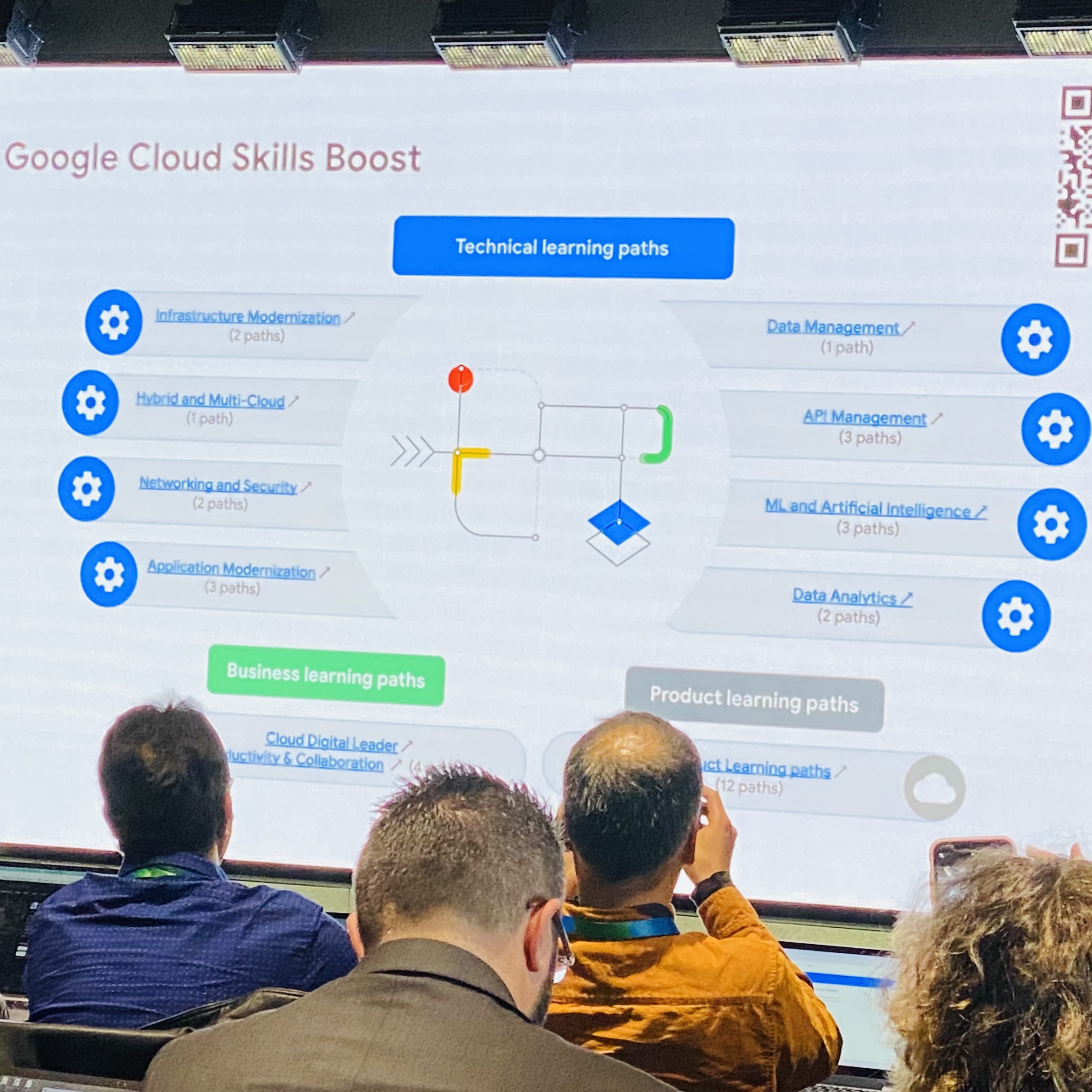
I spoke with Kyle Steckler, Senior Machine Learning Engineer, who verified that it would be possible in the Search & Conversation section of Vertex for me create an agent that could read our local PDF documents and answer questions about the documents.
During the final networking session, complimentary food and drinks fostered a lively gathering of attendees for discussions ranging from Google’s Gemini issue in the news to the various topics covered during the conference. There, I was approached by Rancho Iyer, a Google Customer Engineering Manager, for the obligatory sales pitch. She explained that she could connect me with an account manager to give my company access to the Cloud Skills Boost Team Trial (mentioned earlier) for three months at no cost so we could use all the tools and vet them for our purposes.
Sure enough, I received a call a few days later from Amrit Buri, a Google Account Strategist, who offered to connect us with the Cloud Skills Boost Team Trial three-month free trial, which we are planning to do. After using the Vertex skills learned in the demo on my own, and asking questions of Amrit, I was able to get the answers to all of my questions.
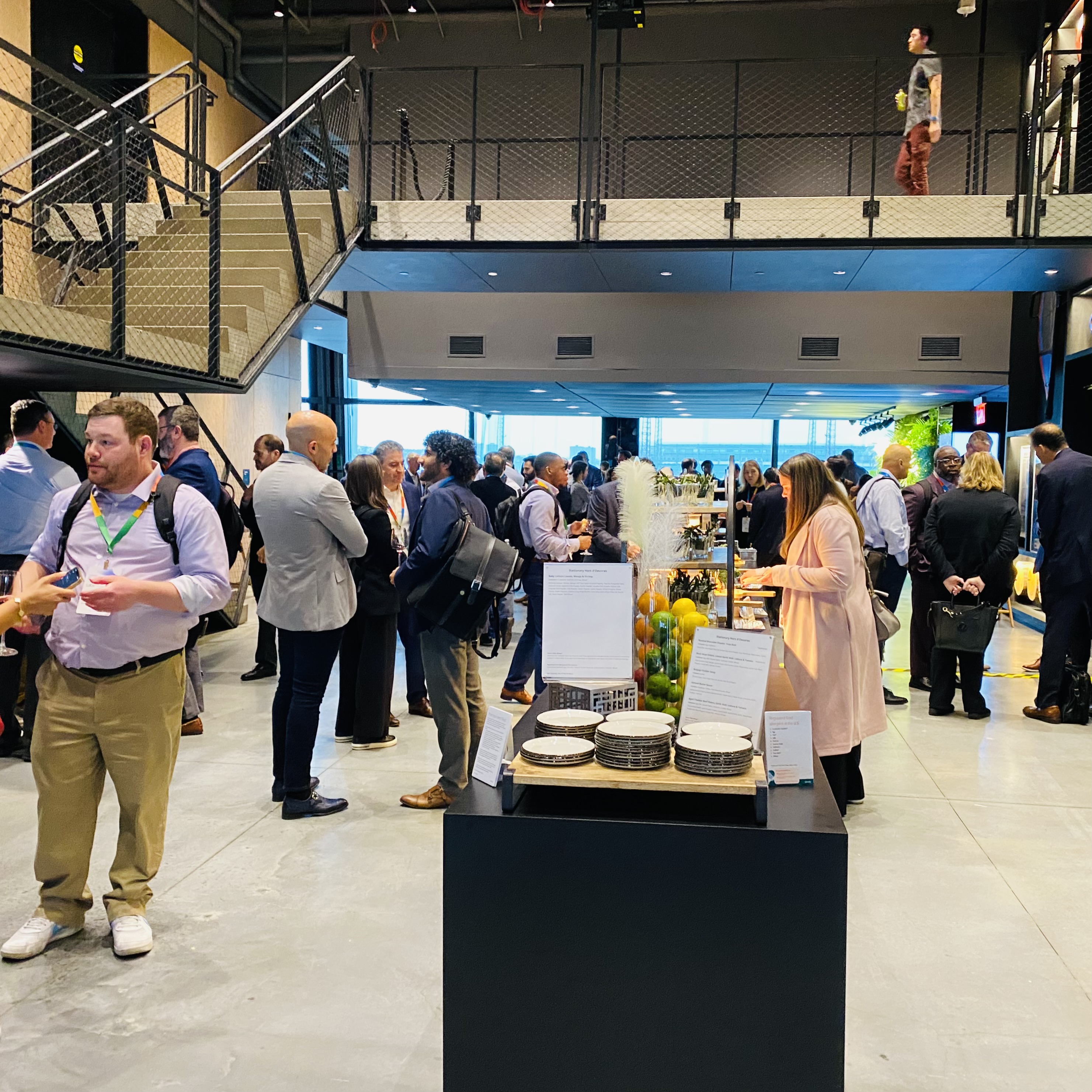
- Google’s Vertex user interface has a greater learning curve than OpenAI’s UI for creating assistants and GPTs, but it also offers more flexibility and service integration if needed.
- Regarding the differences between LLM and NLP tools, I verified that the Vertex NLP model is best for accessing local data specific to my organization, while the Gemini LLM model is best for accessing all online data available, similar to ChatGPT.
- As far as how we will use the tools for our clients, our AI Lab is on the job of evaluating which of the Google tools will work best for which types of client needs. As well, the Business Development team is researching the best options for RFP and proposal management.
Attending the conference and the in-person exposure to the tools helped me gain perspective on Google’s generative AI tools, and better understanding of the AI options available for the public sector. Stay tuned for more on what our AI Lab plans to do next.
AI Lab update on the benefits, risks, and emergent guidelines for LLMs in the public sector
Large Language Model Applications for Government
Learn more
- Contact GovWebworks to learn more and schedule a free demo
- Subscribe to the GovWebworks AI Lab Newsletter
- Large Language Model Applications for Government: AI Lab update on the benefits, risks, and emergent guidelines for LLMs in the public sector
